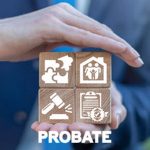Category Archives: Estate Trust Litigation

How Far Can “Dead Hand Control” Go in a Florida Will?
People often use their will (or trust) to make conditional gifts to their beneficiaries. A common example involves tying a gift or bequest to age. For instance, if you have a child who is still a minor, your trust might include language specifying they will not receive their share until they reach the age… Read More »

The Importance of Taking a Consistent Position in Probate Litigation
There is a principle in civil litigation known as judicial estoppel. The basic idea is fairly simple to explain. Basically, if you take a position during a lawsuit, you cannot take a conflicting or contradictory position later in the same case. Even if your new position has merit, the court can hold the party… Read More »

Florida Judge Rejects Children’s Attempt to Disinherit Father Under “Slayer Statute”
It may seem like common sense, but Florida law forbids a person from killing someone and then inheriting their estate. This is colloquially known as Florida’s “Slayer Statute.” It provides that a surviving person who “unlawfully and intentionally kills or participates in procuring the death of the decedent” cannot inherit under the decedent’s will… Read More »

When Do Married Couples Own a Bank Account as “Tenants by the Entirety”?
Married couples in Florida often acquire and hold property as “tenants by the entirety.” This is a form of joint ownership. Essentially, each spouse owns a whole, indivisible interest in the underlying property. When one spouse dies, the survivor continues as sole owner. As neither spouse ever owned the property in their sole name,… Read More »

When Is an Accident Not an “Accident” Under a Life Insurance Policy?
For many Florida residents, life insurance is a crucial part of their estate plan. Life insurance is often the primary means a person has of ensuring financial security for their family if they die suddenly and unexpectedly. One reason for this is that life insurance is payable to a named beneficiary, so it can… Read More »

What Is the “Rule Against Perpetuities”?
In common law, there is a principle known as the rule against perpetuities (RAP). In its original form, the RAP provided that you could not use a legal instrument, such as a deed or will, to create an interest in real or personal property that vests more than 21 years after the death of… Read More »

What Happens to an Estranged Spouse’s Estate If the Divorce Was Not Final?
Under Florida law, divorce automatically terminates most of a person’s rights with respect to their former spouse’s estate planning. For example, a divorce revokes any provision of a will or trust leaving an interest to an ex-spouse. The same would apply for any beneficiary designation on a life insurance policy or retirement account, unless… Read More »

What Is an “Adversary Proceeding” in a Florida Probate Estate?
The process of administering a Florida probate estate is generally not adversarial. That is to say, a probate proceeding does not typically involve litigation. The personal representative appointed to administer the estate simply gathers any probate assets, pays any debts and expenses, and distributes whatever remains to the heirs or beneficiaries of the decedent…. Read More »

Suing a Trustee vs. Suing an Individual in Trust Litigation
A trustee is a fiduciary who oversees the administration of a trust. Typically, if a person wishes to sue the trust, they sue the trustee in their fiduciary capacity. In other words, they are not suing the trustee individually. Of course, there are situations where someone may need to sue the trustee in their… Read More »

Florida Court Dismisses Trust’s Lawsuit Against Grantor’s Estate Over “Unpaid Rent”
Estate planning trusts are commonly used to hold and manage real estate. Indeed, many Florida residents take advantage of trusts to own and transfer their personal residences outside of the normal probate process, while still preserving their ability to keep living at home during their lifetimes. While such arrangements usually benefit all parties involved,… Read More »

 Mark R. Manceri, P.A. is a boutique law firm that specializes in Estate, Trust and Guardianship litigation. These matters include Will and Trust contests involving lack of capacity, undue influence, forgery, improper execution and tortious interference...
Mark R. Manceri, P.A. is a boutique law firm that specializes in Estate, Trust and Guardianship litigation. These matters include Will and Trust contests involving lack of capacity, undue influence, forgery, improper execution and tortious interference...